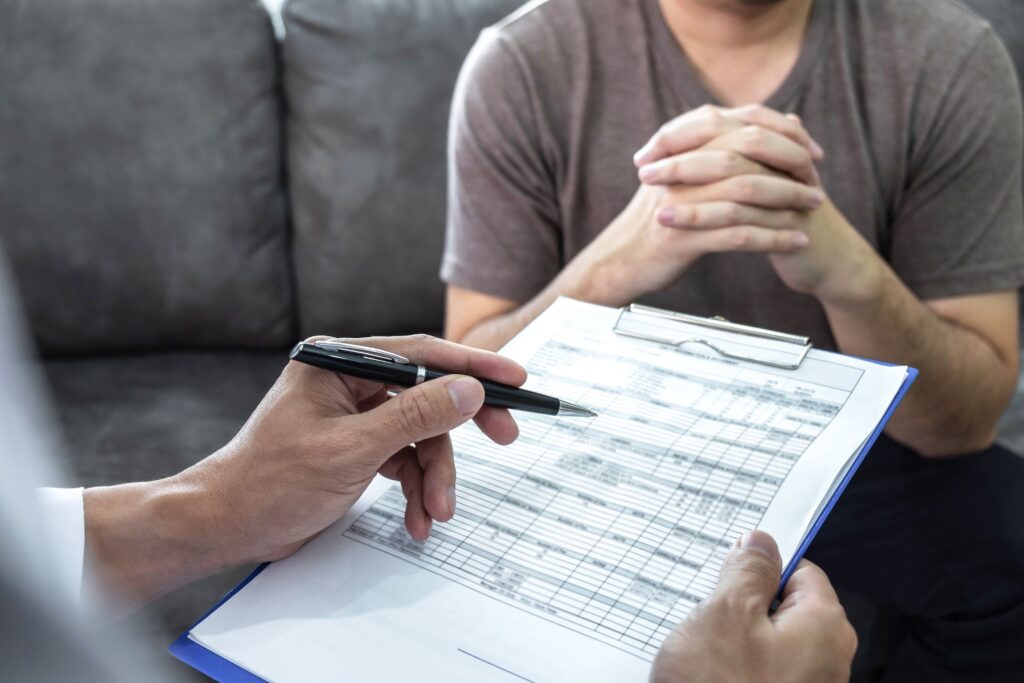
Celexa, also known by its generic name citalopram, is a popular antidepressant prescribed to treat major depressive disorder and other mental health conditions. As with any medication, it is important to understand the potential withdrawal symptoms that can occur when stopping or tapering off Celexa. At Atlanta Integrative Psychiatry, we ensure you are well-informed and prepared to manage Celexa withdrawal symptoms effectively. Our program of recovery will provide you with the support and medical care you need to move safely and comfortably through Celexa withdrawal.
If you or someone you love is at risk of experiencing Celexa withdrawal, we are available to help. Call us today or schedule a consultation to learn more about our mental health treatment program.
Understanding Celexa and Its Mechanism
Celexa belongs to a class of antidepressants known as selective serotonin reuptake inhibitors (SSRIs). It works by increasing the levels of serotonin in the brain, which helps improve mood, reduce anxiety, and alleviate symptoms of depression. While Celexa can be highly effective for many individuals, discontinuing its use without proper medical guidance can lead to withdrawal symptoms.
Why Do Withdrawal Symptoms Occur?
When someone stops taking Celexa abruptly or reduces their dose too quickly, the brain struggles to adjust to the sudden decrease in serotonin levels. This imbalance can trigger a range of withdrawal symptoms, which vary in intensity and duration depending on several factors, including the dosage, the duration of use, and the individual’s overall health.
Common Celexa Withdrawal Symptoms
When discontinuing Celexa, it’s important to be aware of the various withdrawal symptoms that might arise. These symptoms can manifest in different ways and affect both the mind and body. Understanding these common withdrawal symptoms can help you recognize them early and seek appropriate support, ensuring a smoother transition off the medication. Below are some of the most frequently reported Celexa withdrawal symptoms to look out for.
- Dizziness and Balance Issues: One of the most common symptoms is dizziness or a sensation of vertigo. This can make simple tasks challenging and may lead to balance problems.
- Headaches: Withdrawal from Celexa can lead to persistent headaches, ranging from mild to severe. These headaches can be similar to tension headaches or migraines.
- Nausea and Gastrointestinal Issues: Many individuals experience nausea, vomiting, and other gastrointestinal disturbances, such as diarrhea or abdominal cramps.
- Flu-like Symptoms: Some people report flu-like symptoms, including fatigue, muscle aches, chills, and sweating.
- Sleep Disturbances: Insomnia, vivid dreams, or excessive sleepiness can occur during withdrawal. These disruptions can significantly impact daily functioning.
- Mood Swings and Irritability: Emotional instability is common, with individuals experiencing mood swings, irritability, and even episodes of intense anger or frustration.
- Anxiety and Panic Attacks: Increased anxiety levels or the onset of panic attacks are possible as the body adjusts to lower serotonin levels.
- Brain Zaps: Some individuals describe a sensation known as “brain zaps,” which feels like electrical shocks in the brain. While not harmful, they can be unsettling.
- Concentration and Memory Issues: Difficulty concentrating, memory lapses, and a general sense of cognitive fog are also reported by those withdrawing from Celexa.
- Depressive Symptoms: A return or worsening of depressive symptoms can occur, making it essential to monitor mental health closely during withdrawal.

Tips for Managing Celexa Withdrawal Symptoms
Managing Celexa withdrawal symptoms effectively requires a comprehensive approach. By incorporating these tips into your routine, you can better manage Celexa withdrawal symptoms and support your overall health and well-being during this transition. Always stay in close communication with your healthcare provider to ensure the best possible outcomes, and enter a medical detox program if the symptoms are too difficult to manage on your own.
Consult Your Doctor
Never stop taking Celexa abruptly. Always consult your healthcare provider to develop a tapering plan tailored to your needs. They can guide you through a gradual reduction in dosage, minimizing withdrawal symptoms.
Taper Gradually
Gradually reducing the dosage over weeks or months can help ease the transition off Celexa. Your doctor will provide a schedule that best suits your situation, ensuring your body adjusts slowly to the change.
Stay Hydrated
Drinking plenty of water helps flush out toxins and can alleviate symptoms like headaches and nausea. Aim for at least eight glasses of water a day to stay hydrated.
Maintain a Healthy Diet
A balanced diet rich in fruits, vegetables, lean proteins, and whole grains supports your body’s recovery. Nutrient-dense foods can help stabilize your mood and energy levels during withdrawal.
Exercise Regularly
Engaging in regular physical activity can boost your mood, reduce anxiety, and improve overall well-being. Even moderate exercise like walking, swimming, or yoga can make a significant difference.
Practice Relaxation Techniques
Techniques such as deep breathing, meditation, and yoga can help manage stress and reduce withdrawal symptoms. Incorporating these practices into your daily routine can enhance your mental and physical relaxation.
Get Enough Sleep
Prioritize good sleep hygiene to combat insomnia and other sleep-related issues. Establish a regular sleep schedule, create a calming bedtime routine, and ensure your sleep environment is conducive to rest.
Seek Support
Individual therapy or joining a support group can provide emotional support and practical advice during the withdrawal process. Connecting with others who have experienced similar challenges can be incredibly reassuring.
Monitor Symptoms
Keep a journal to track your symptoms and share this information with your healthcare provider. Documenting your experiences can help in adjusting your tapering plan if necessary and provide insights into your progress.
Be Patient
Withdrawal can be a gradual process, and symptoms may take time to subside. Patience and persistence are key. Recognize that healing is a journey and give yourself the grace to move through it at your own pace.
Stay Engaged in Activities You Enjoy
Engaging in hobbies and activities you enjoy can distract you from withdrawal symptoms and promote a positive mindset. Whether it’s reading, gardening, or spending time with loved ones, staying active and engaged can enhance your overall well-being.
Avoid Alcohol and Recreational Drugs
These substances can exacerbate withdrawal symptoms and interfere with your recovery. It’s best to avoid them to maintain a stable and healthy path forward.
When to Seek Immediate Help
While most withdrawal symptoms are manageable, there are instances where immediate medical attention is necessary.
- Severe Depression or Suicidal Thoughts: If you experience severe depressive symptoms or thoughts of self-harm, seek emergency help immediately.
- Persistent or Worsening Symptoms: If your symptoms do not improve or worsen over time, contact your healthcare provider.
- Physical Health Concerns: Any concerning physical health changes, such as chest pain or difficulty breathing, should be evaluated by a medical professional.
Learn More About Celexa Withdrawal
Celexa withdrawal symptoms can be challenging, but with the right approach and support, they can be managed effectively. Always work closely with your healthcare provider to develop a safe tapering plan and monitor your symptoms throughout the process. By understanding the potential withdrawal symptoms and how to address them, you can navigate this transition with greater ease and confidence.
Atlanta Integrative Psychiatry can help you navigate this transition with greater ease and confidence. Call us today or schedule a consultation for personalized advice and expert guidance on managing Celexa withdrawal symptoms. Our team of experienced professionals is here to support you every step of the way.





